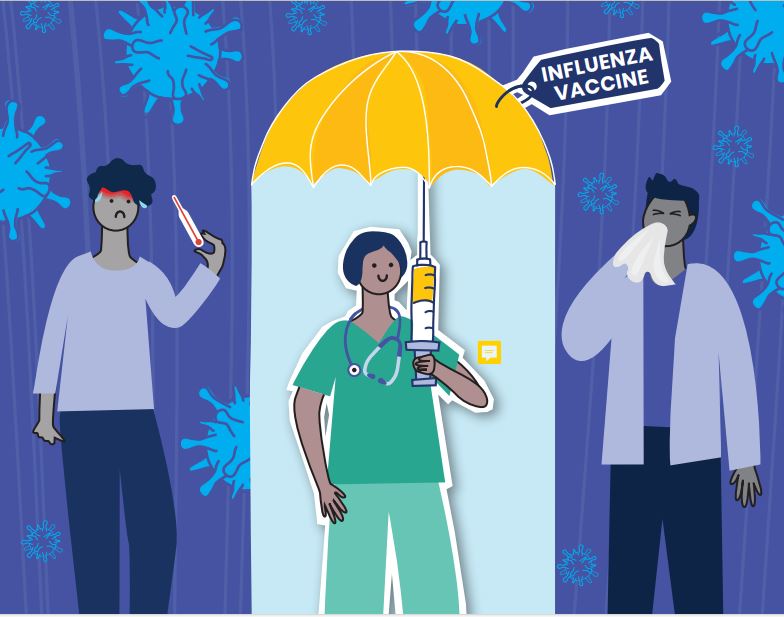The World Health Organization (WHO) recommends that all countries consider implementing an influenza vaccination programme or include influenza vaccination in their national immunization programme. To help countries strengthen their national seasonal influenza programmes, WHO and partners are providing technical and financial resources.
Vaccination is our best tool for reducing influenza. The Global Influenza Strategy 2019-2030 encourages countries to implement seasonal influenza prevention and control policies and programmes. In addition, the Immunization Agenda 2030 highlights the importance for countries to strengthen immunization policies and service delivery throughout the life-course to assure access to life-saving vaccinations for children, adolescents, and adult populations. While seasonal influenza vaccination is given universally in some countries (to everyone 6 months old and older), WHO specifically recommends seasonal influenza vaccination for health workers, pregnant people, adults with chronic conditions, older adults, and other populations identified as priorities by countries.[i]
Developing and implementing seasonal influenza vaccination policies
Low and middle income countries have expressed increasing interest in developing or strengthening their national influenza vaccination programmes. Over the last four years, six low and middle income countries have introduced seasonal influenza vaccination. When asked about their motivation for establishing these programmes, countries identified health workforce protection, reducing hospitalizations and deaths in vulnerable populations, and enhancing national preparedness for respiratory pathogen pandemics as their primary drivers. Furthermore, annual seasonal influenza vaccination can help to sustain manufacturing facilities, develop delivery capacities, increase vaccine acceptance, train health workers, strengthen decision-making, and exercise systems used for pandemic response.
What’s available to help countries strengthen their national policies and programmes? WHO regularly updates a seasonal influenza vaccination toolkit that provides guidance, training, and advocacy resources. Recently, a policy brief was added to the toolkit to provide countries with an adaptable outline that can be used to develop and/or update the national policy. Countries around the world have already started using this policy brief to update their national influenza vaccination policies.
In mid-February 2024, 11 countries from the Eastern Mediterranean Region came together in Tunisia to share best practices and lessons learned while establishing an influenza vaccination programme, integrating influenza vaccination with the broader Expanded Programme on Immunization, and using new tools. During the workshop, the countries reviewed their existing seasonal influenza vaccination policies and identified how their national policies could be improved. In May 2024, countries will be introduced to the policy brief at the annual Severe Acute Respiratory Infections Network (SARInet) meeting in Mexico.
Partner coordination and an expanding toolkit
With support from the US government, the Task Force for Global Health, and the Pandemic Influenza Preparedness Framework Partnership Contribution, additional resources are being piloted in 2024 to support countries in strengthening their national programmes. These include a facilitated national assessment of seasonal influenza vaccination programmes and a package of vaccination acceptance and demand tools. These tools will be added to the seasonal influenza vaccination toolkit later this year. To support countries in using these tools, WHO is planning a global meeting in July 2024 on seasonal influenza vaccination.
In addition to webinars and workshops, if you are interested in learning more about these resources or getting involved, please email influenza@who.int.

[i] https://www.who.int/publications-detail-redirect/who-wer9719
